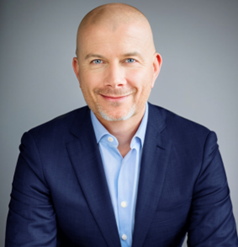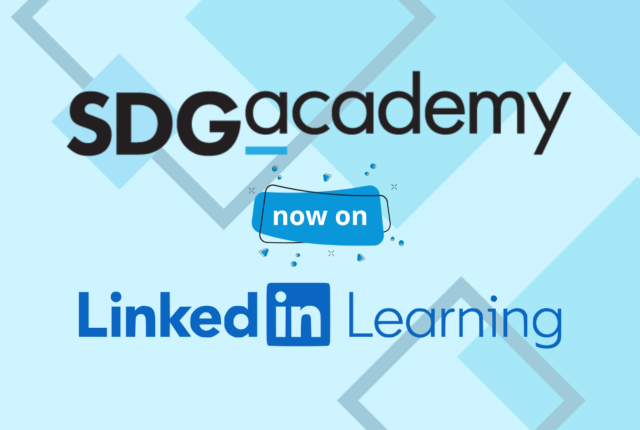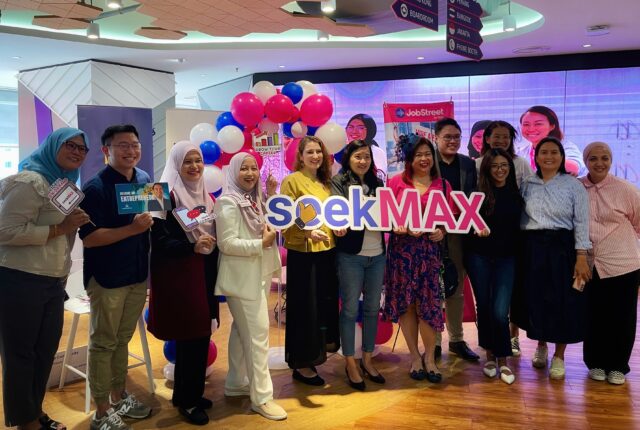By Lorcán Hall
The scale of the challenges facing our global society can feel paralysing. Indeed, the waves of information hitting us daily appear to excessively focus on the problems at the expense of championing successes. How might we deepen our understanding of these challenges, ideate novel solutions, and scale innovations that already exist today?
This question fueled my recent Master’s of Science in Sustainable Development studies at University College Dublin (UCD) in partnership with the UN Sustainable Development Solutions Network (SDSN). Global academics, policymakers, and practitioners lead this pioneering course. Importantly, it is designed to inspire and empower students to take action. Plus, its online delivery enables students from across the world to participate, providing unique opportunities to learn from and collaborate with peers.
I highly recommend this course and the accompanying portfolio of SDG Academy courses. In this blog, I will share my personal motivation for pursuing the MSc., explain how it links to my professional career and ambitions, and offer my thoughts on how other experienced professionals can use the science and solutions taught in this course to reorientate their careers towards sustainable development.
The motivation for my SDG knowledge journey
My father retired due to ill-health in his mid-40s. Fortunately, his disability pension was supplemented with voluntary private disability insurance, acutely illustrating the value of public and private financial safety nets to my family. This experience was a key factor in my decision to join the insurance industry in 1998. I later learned that the guiding principle sitting at the heart of insurance is that ‘many pay for the few,’ meaning that many people pay insurance premiums so that a few people receive financial support when they experience unwanted events such as illnesses and natural disasters.
In general, there are two groups of insurance: social protection programmes funded by government revenues and voluntary solutions available from private insurance companies. My professional experience has been exclusively in the latter category; but, at times, I have struggled to articulate the societal value of insurance, particularly to people outside the industry. The Covid-19 pandemic and the climate emergency sparked my desire to address this knowledge gap and understand how insurance solutions might play a stronger role in addressing our interconnected challenges.
My journey started with the excellent online SDG Academy course, Age of Sustainable Development. Delivered by Professor Jeffrey Sachs, a world-renowned expert on sustainable development, the course describes the 17 SDGs across their four pillars of economic prosperity, social inclusion, environmental sustainability, and good governance. Surprisingly, insurance was referenced several times in this course, inviting me to dive deeper into the SDGs via the Master’s programme.
Insurance & the SDGs
Once I began studying, I quickly learned that there is a compelling symmetry between insurance and the 2030 Agenda for Sustainable Development with ‘many pay for the few’ echoed in the 2030 Agenda’s central promise to ‘Leave No One Behind.’ Throughout my studies, I located numerous examples of how the solidarity principle of insurance powers progress across the SDGs. Three examples bring this to life:

SDG 1 – No Poverty: Today, almost 700 million people live in extreme poverty, 3.4 billion people are vulnerable to falling into poverty, and 4.1 billion people, 53% of the world’s population, do not have access to any type of social protection. Voluntary private insurance solutions can play an important role to plug some of this protection gap. These solutions should not replace the universal social protection ambitions in SDG Target 1.3. Rather, they are complementary as they facilitate access to financial supports to customers who can afford insurance premiums, thereby minimising the strain on stretched publicly funded social protection systems. It’s not public OR private; it’s public AND private.

SDG 3 – Good Health & Well-being: Universal health coverage is critical, but the Covid-19 pandemic highlighted the fragility and underfunding of our healthcare infrastructures, making it difficult to achieve SDG Target 3.8. In 2019, before the pandemic, about 1 billion people spent more than 10% of their household budget on out of pocket health expenses and close to 400 million people were (further) pushed into extreme property due to these expenses. Again, public healthcare systems can benefit from regulated voluntary insurance markets, as the latter facilitates access to private health services and financial supports to populations who can afford insurance premiums. This allows public healthcare systems to focus their limited resources on vulnerable groups that cannot afford voluntary insurance. In effect, people who are relatively healthy and wealthy subsidise people who are sick and poor.

SDG 13 – Climate Action: Insurance supports mitigation and adaptation efforts in various ways. As we know, from a mitigation perspective, investments are required to transform the energy system. Insurance is key to enabling this energy transition, as, for the most part, insurance solutions are essential to mobilise private capital towards these clean energy projects. In parallel, the growing number of extreme weather events demand adaptation solutions to support populations impacted by climate-related hazards and natural disasters as outlined in SDG Target 13.1. Global economic losses from natural disasters totaled USD 275 billion in 2022 but only 45% of these losses were insured. This creates a massive protection gap, disproportionately affecting poor and vulnerable populations. As the impact of climate change intensifies across the globe, there is a greater need for all types of insurance to fuel adaptation initiatives.
It is important to emphasise that while I explored the MSc. material through an insurance lens, others will find the SDGs relevant to their personal and professional lives in many different ways.
Teaching Old Dogs New Tricks
There are first-rate SDG educational initiatives targeting primary, secondary, and tertiary students; yet we cannot only wait for younger generations to grow into positions of power and influence to drive the urgently required change. More work is required to provide experienced professionals with scientifically anchored and solutions-focused SDG knowledge.
Frequently, there is a misconception that the SDGs are for “the public sector and poor countries,” but my knowledge journey has completely dispelled this myth. The need for solidarity is rising rapidly across all developed and developing nations with events such as the COVID-19 pandemic, the war in Ukraine, and extreme weather events demonstrating how interconnected and uncertain the globe is becoming.
Insurance offers greater resilience in the face of this increasingly complex world; however, it is only one of various solutions that are available today. Welcomingly, many of these solutions are known and exist somewhere on our planet. But how might we, experienced professionals, equip ourselves with the knowledge required to move from discussing societal challenges to substantive action across the public and private spheres?
The MSc. in Sustainable Development from UCD and SDSN provided me with the solution I was looking for. Recognising that experienced professionals often have limited time, there are several flexible options available: the SDG Academy offers more than 40 high-quality courses, presenting pathways to obtain an edX Professional Certificate, a UCD Professional Diploma, and the MSc. in Sustainable Development. The SDG Academy has also partnered with LinkedIn Learning to offer micro-courses on its platform. Stand-alone or together, these courses present compelling opportunities to acquire the knowledge to innovate and scale solutions that will create a brighter, more sustainable future for everyone.

Lorcán Hall studied for an MSc. in Sustainable Development at University College Dublin in partnership with UN Sustainable Development Solutions Network. He is an MBA-educated strategy and innovation insurance professional with over 20 years’ experience working with leading companies in Ireland, Germany, Switzerland, and the UK.



